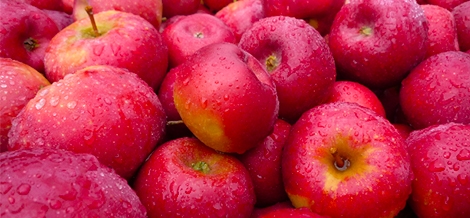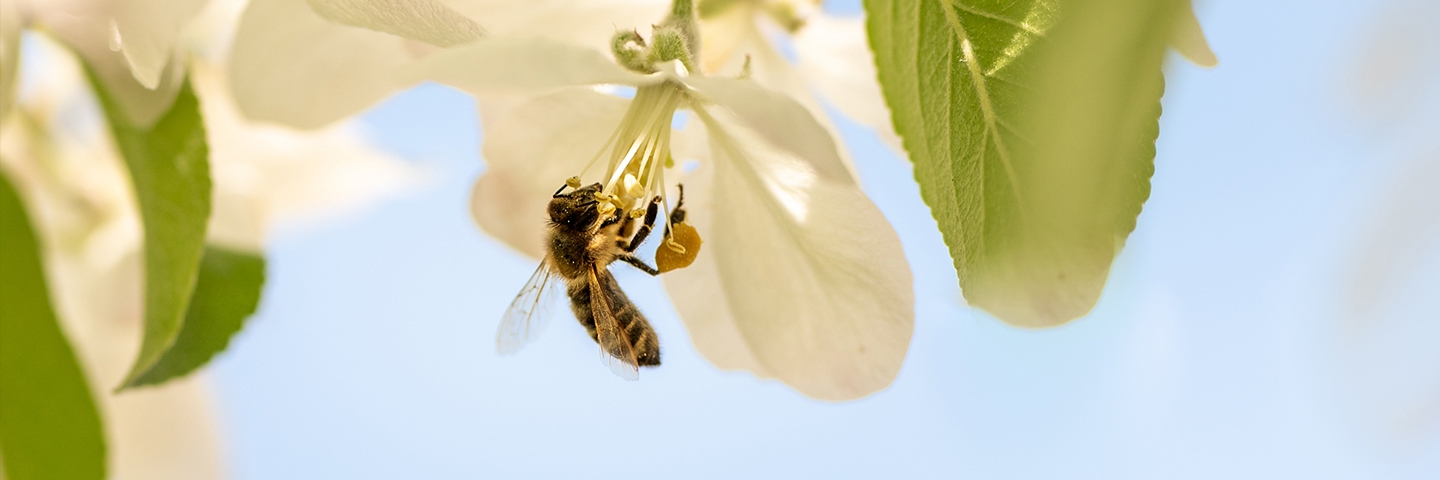
Our Commitments
DEVELOPING ECO-FRIENDLY ORCHARDS
These are orchards where the fruiticultors limit chemical and privilege biocontrol and natural technics. They use qualified methods in organic production but do not stop the using phytosanitary products only in case of need.
1. Continual observation of the orchard
To limit interventions in the orchards, Blue Whale uses diagnostic and prevention process with the help of a technician. Thanks to a continual observation of the orchards, analysis of insect traps… Blue Whale is reactive, can choose the best solution and this way can proscribe automatic treatments unsuitable.
100% of Blue Whale orchards have a technical monitoring.
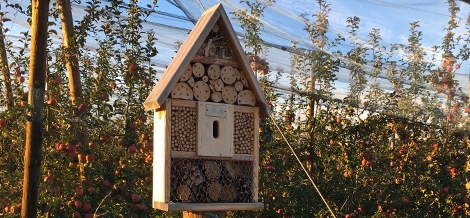
2. Mating disruption
This technic consist of putting hormone diffusers in orchards to fight against 2 insects harmful for apple trees: codling moth and tordeuse. Hormones disturb butterfly and stop the reproduction avoiding infesting the orchards.
90% of Blue Whale orchards apply this technic.
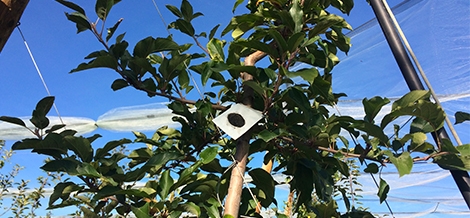
3. Insect proof nets
Consist of an efficient barrier that protect the orchards from external aggressions which may be animal, viral or climatic. When the nets are at the end of their cycle, they are recycled. One hectare of nets can make around 10 plastic benches or urban furniture.
200 hectares of Blue Whale orchards are covered with insectproof nets and 50 hectares are recycled.
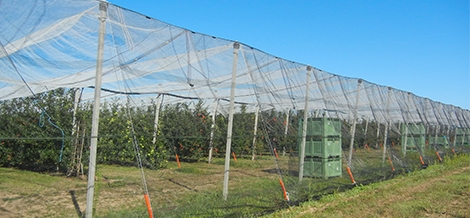
4. Nesting boxes for tits
Nesting boxes in Blue Whale orchards are very common because tits love codling moth and larvae, the most harmful insects for apples.
200 nesting boxes are in Blue Whale orchards.
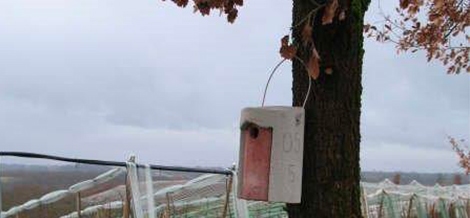
5. Bee hives
Present in orchards to enhance polinization vital for the growth of the fruit. Very sensitive to chemical products their presence in orchards proves that they are not treated.
Several bee hives set up in Blue Whale orchards.
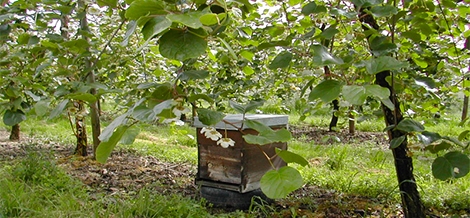
6. To optimize the use of water
Regulate the irrigation is the major concern for Blue Whale fruiticultors. The management of the water with pressure monitors helps to adjust the water supply to the nearest needs of the tree and according to season and weather. Blue Whale is in partnership with the IRRIS project (Irrigation, Ingenieries services) which aims the conception of a new hydric probe to optimize at the best the water resources.
50% of the Blue Whale orchards have a regulated irrigation system.
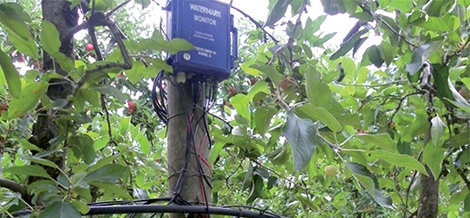
7. Management of phytosanitary effluence
Blue Whale fruiticultors look always at using less chemicals but when they treat orchards they managed effluent systems to limit the risk of soil and underground waters pollution.
97% of Blue Whale orchards have an effluent system management.
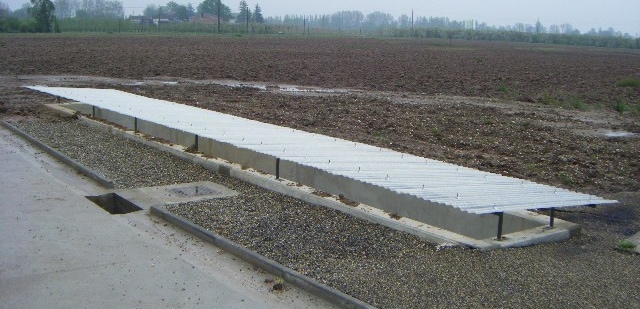
8. Hedge development
Fruiticultors surround their orchards with hedges of with flowered lands to enhance the development of biological auxiliary insects. Ladybirds and other insects eat aphids or red spiders… They are all useful for the grower as a natural protection for the orchard.
Several Blue Whale orchards are surrounded by plant hedges.
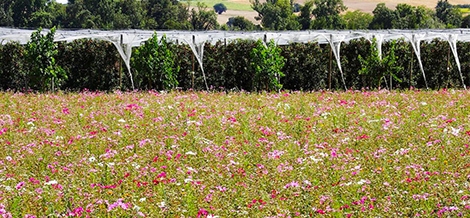
9. Taking care of orchards
Blue Whale fruiticultors give priority to mechanical de- weeding at bottom of trees to limit the development of aphids and to avoid the decrease of the productivity. Alleys are covered with grass to contain the water streaming and to increase the natural fertilizing of the orchard. Contaminated shoots are cut to fight naturally against mildew.
100% of Blue Whale fruiticultors choose to take a natural care of their orchards.
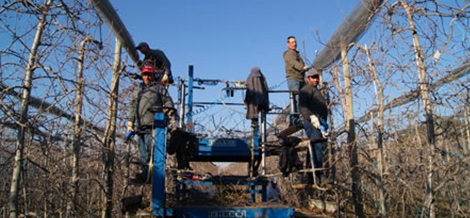
10. Selection of varieties naturally resistant to diseases
To limit the treatments, growers will select strong varieties that resist well to diseases like scab. Blue Whale Group is committed to research in developing new resistant varieties.
Every year Blue Whale invest in Research and Development projects.
